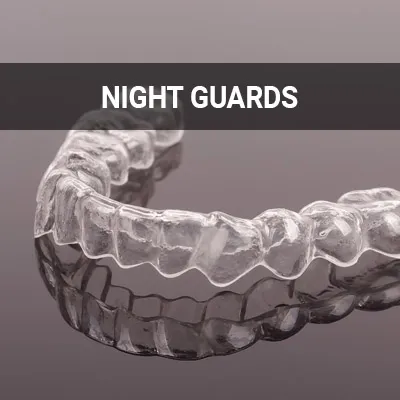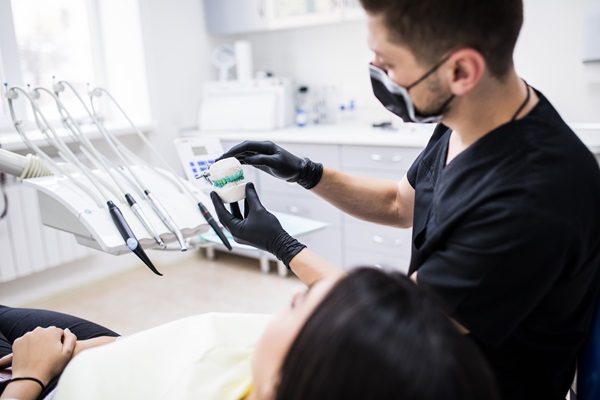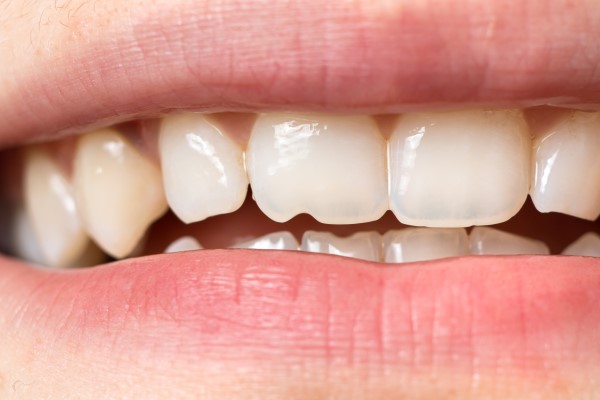Mouth Guards Federal Way, WA
Mouth guards aren't just for athletes. These dental devices can address many different health issues in both children and adults, ranging from teeth grinding to sleep apnea relief. Made of plastic, a mouth guard fits over the teeth of your upper jaw and protects your teeth, tongue, gums, and cheeks from trauma.
Various types of mouth guards are available on the market today, including custom-fitted ones that are comfortable and effective. Dental mouth guards are available at Smile Center Dental Care in Federal Way and the surrounding area. Call us at (253) 336-0023 to schedule an appointment or learn more about our services.
Mouth Guard Candidacy
Mouth guards are a preventative appliance that can protect the teeth and gums from harm or injury. These tools are a great way to protect the soft tissues of the tongue, lips, and inner cheeks. They help cushion the face from trauma during sports, prevent broken teeth, and stop injuries to the jaw, face, tongue, or lips.
There are various mouth guards that patients can choose from depending on their needs. People who may benefit from getting a mouth guard include those who:
- Grind their teeth
- Have specific sleep issues
- Have temporomandibular disorders (TMD)
- Participate in contact sports
“Mouth guards are a preventative appliance that can protect the teeth and gums from harm or injury.”
Creating a Custom Mouth Guard
The ideal mouth guard should be fitted to the patient's mouth, stay in place comfortably and securely, and be relatively easy to clean. Custom-fitted mouth protectors are more durable and personalized to address the patient's specific needs. When properly taken care of, they can last for years.
The creation of a dental mouth guard usually involves two appointments. We will take an impression of the patient's teeth during the first appointment and make a model to create a personalized mouth guard. After creating the mouth guard, we will make sure that it fits properly during the second appointment. Our team will file down any rough edges and make any necessary adjustments to ensure that the device is comfortable.
“Custom-fitted mouth protectors are more durable and personalized to address the patient’s specific needs.”
When to Wear a Mouth Guard
Mouth guards are beneficial during various activities, from playing sports to sleeping at night. They are especially helpful for children and adults who clench their jaws and grind their teeth. Wearing a nocturnal bite plate or bite splint at night while sleeping can provide patients suffering from bruxism with some relief.
The mouth guard acts as a barrier between the teeth so that the enamel does not get worn down from grinding during sleep. They can protect teeth from excessive wear and temporomandibular joint disorders. It also allows the jaw muscles to recover during sleep.
“Wearing a mouth guard at night during sleep can provide patients with bruxism with some relief.”
Check out what others are saying about our dental services on Google: Mouth Guards in Federal Way, WA
Sleep Apnea and Snoring
Sleep apnea is a sleep disorder that happens when breathing becomes interrupted during sleep. When untreated, sleep apnea can cause people to stop breathing many times at night and lead to serious health complications. Fortunately, mouth guards are available to help people manage their condition and improve their breathing ability. Specialized mouth guards can prevent the tongue from slipping back and blocking the throat or move the jaw forward.
Mandibular advancement devices (MADs) push the lower jaw forward to open up the airway. Tongue retaining devices (TRDs) hold the tongue and prevent it from slipping back and blocking the airway. These appliances can also help people who snore since they keep the airway open during sleep. Although there is no cure for snoring, mouth guards can significantly minimize the amount.
“Specialized mouth guards can prevent the tongue from slipping back and blocking the throat or move the jaw forward.”
Questions Answered on This Page
Q. How is a custom mouth guard made?
Q. How often should people wear their mouth guards?
Q. How can mouth guards help sleep apnea and snoring?
Q. How can mouth guards protect teeth during sports?
People Also Ask
Q. What sorts of trauma can necessitate tooth extraction?
Q. Why is it important to find the right general dentist?
Q. How effective are mouth guards?
Q. What is the difference between mouth guards and night guards?
Mouth Guards and Sports
Many dental injuries are sports-related. Mouth-related sports injuries can result in fractured tooth roots, broken or chipped teeth, and cuts to the lips or inner cheeks. Mouth guards are essential pieces of equipment for any person that plays sports to avoid dental trauma.
They are especially important for people who play high-contact sports and are at greater risk for facial trauma. The highest risk sports for dental injuries are basketball, football, hockey, martial arts, and boxing. People who play non-contact sports, such as skating, biking, and gymnastics, can also benefit from wearing a mouth guard to protect their mouth.
“Mouth guards are essential pieces of equipment for any person that plays sports to avoid dental trauma.”
Frequently Asked Questions
Q. How much does a mouth guard cost?
A. The cost of a mouth guard depends on the type, material, and other specifications. Some insurance plans may help cover the cost. Since every insurance plan is different, patients should contact their insurance provider for more coverage information.
Q. How should I take care of my mouth guard?
A. It is important to take care of mouth guards to prevent them from breaking or warping. Rinsing the device with cold water and brushing them with a soft-bristled toothbrush will remove unwanted bacteria and debris. We recommend storing them in a protective container and avoiding hot surfaces or sunlight that can cause the mouth guard to warp.
Q. What causes bruxism?
A. Bruxism is when someone grinds their teeth and clenches their jaw. It is often the result of stress, sleep disorders, acid reflux, or a misaligned bite. Certain activities, such as smoking or drinking alcohol, can also increase the risk of grinding teeth.
Q. Can mouth guards go over braces?
A. Braces wearers should use a mouth guard since they are especially vulnerable to sports-related injuries. Braces can help prevent soft-tissue injuries to the inner cheeks and lips. Patients can have custom-fitted mouth guards that fit over braces.
Q. How long does a mouth guard last?
A. The longevity of a mouth guard will depend on how frequently a person uses their device. With the right care, mouth guards can for several years. Patients should bring their mouth guard to dental check-ups for inspection. Custom-fitted mouth guards are typically more durable than over-the-counter ones.
Family Dental Terminology
Learn More About Mouth Guards
Mouth guards can protect the mouth and teeth during various activities, from sports to sleeping. Our team at Smile Center Dental Care can determine whether you are a good candidate for a mouth guard. Call us at 253-336-0023 for more information about our services or schedule an appointment.
Helpful Related Links
- American Dental Association (ADA). Glossary of Dental Clinical Terms. 2024
- American Academy of Cosmetic Dentistry® (AACD). Home Page. 2024
- WebMD. WebMD’s Oral Care Guide. 2024
About our business and website security
- Smile Center Dental Care was established in 2005.
- We accept the following payment methods: American Express, Cash, Check, Discover, MasterCard, and Visa
- We serve patients from the following counties: King County and Pierce County
- We serve patients from the following cities: Federal Way, Auburn, Kent, Des Moines, Tacoma, Fife, Milton, Edgewood, SeaTac, and Algona
- National Provider Identifier Database (1770035289). View NPI Registry Information
- Norton Safe Web. View Details
- Trend Micro Site Safety Center. View Details
Back to top of Mouth Guards











